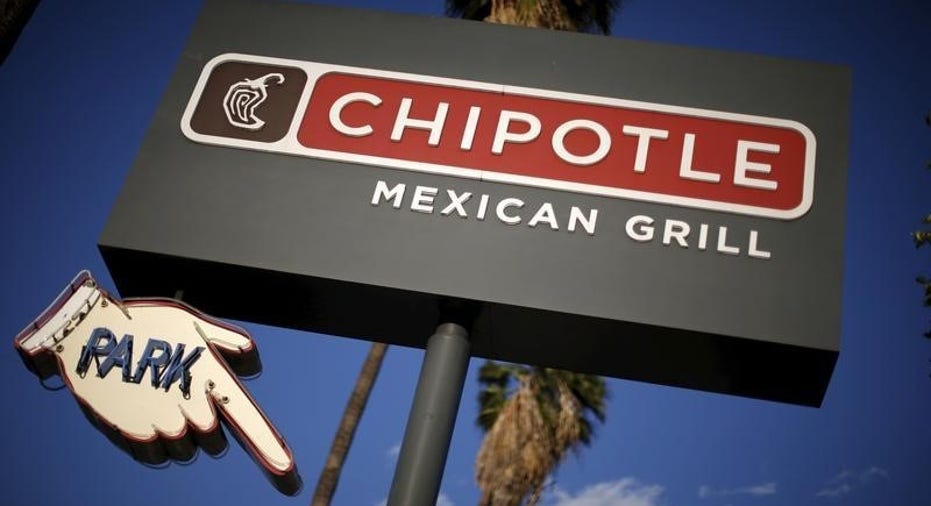Chipotle Makes New Push to Regain Trust on Food Safety

Nearly a year after two E. coli outbreaks sickened dozens of its customers in several states, Chipotle Mexican Grill Inc. still is trying to convince people that they can trust what's in their burritos.
In a marketing campaign beginning Wednesday, the company proclaimed that it is tracing ingredients back to the farm, blasting pathogens off chorizo with high-powered water jets and requiring restaurant managers to receive food-safety certification.
In the months after the outbreaks, which included salmonella in Minnesota, norovirus in California and Boston, and E. coli in 14 states ranging from Oregon to Delaware, Chipotle tried to win back customers with free burritos and a loyalty program that rewarded repeat visits.
But sales continued to slide. Analysts began urging the company to assure customers that its food was safe to eat. In addition to newspaper ads Wednesday in nine major U.S. newspapers, including The Wall Street Journal, Chipotle plans to run digital ads drawing consumers to its website, where they can read more about the food-safety improvements.
Some new methods that the chain tested to keep food safe disappointed customers. When Chipotle moved the preparation of some ingredients to central kitchens, where they could be tested for pathogens, customers complained that the quality of the lettuce and bell peppers declined. Chipotle executives worried that their competitive advantage of serving fresh food swiftly was at risk, said David Acheson, a former chief medical officer at both the U.S. Department of Agriculture and the Food and Drug Administration whom Chipotle hired in February to help design its food-safety system.
The challenge, as Dr. Acheson put it: "Can we do this safely or do we have to walk away from this?"
Dr. Acheson said he assured Chipotle's dual chief executives, Steve Ells and Monty Moran, that new protocols could help Chipotle keep its fresh-food pledge. Now, every ingredient from black beans to tomatoes is being tested for pathogens at the supplier level, where laser-scanned bar codes are attached to every shipment and tracked as they travel from farm to distribution center to restaurant.
Ingredients then undergo various "kill" steps to stop pathogens, such as blanching vegetables and washing lettuce, both before chopping it and again after. Lettuce and bell peppers are being chopped in restaurants again. Tomatoes still are being washed and cut in central kitchens, and sofritas and some salsas still are made in central kitchens.
Steak still is prepared off-site using a French slow-cooking technique called sous vide, in which meat is cooked in a vacuum-sealed plastic bag in water at low temperature. Chipotle says the process is safer because it cooks the meat more evenly and the meat tastes better because it retains its moisture. Chorizo undergoes high-pressure treatment at facilities in California and Chicago to kill pathogens without heating it or altering its flavor.
All 3,862 Chipotle restaurant managers are required to undergo special training and certification in proper food-handling methods. Restaurant workers also are taking food temperatures at different points in the cooking process to make sure that meat is being heated properly.
All restaurants are subject to frequent internal food-safety audits and new quarterly external audits. Half of manager bonuses are tied to scores from those audits. The compensation of corporate executives isn't tied directly to food safety, but the company explains that executive compensation is driven largely by the stock performance, which would be affected if there is another outbreak.
"You're never done with food safety. It's a constant investment," Dr. Acheson said.
Chipotle hasn't disclosed how much its food-safety program will cost.
The moves come as investors increase pressure on Chipotle to find its feet again. Activist investor William Ackman's Pershing Square Capital Management LP earlier this month disclosed a 9.9% stake in Chipotle. In a filing, the firm said it would seek talks about Chipotle's board, costs and strategic plans.
Dr. Acheson said Chipotle is committed to spending whatever it costs to ensure that its food is safe and he has "no whiff that an activist is changing that one scrap."
Write to Julie Jargon at julie.jargon@wsj.com



















